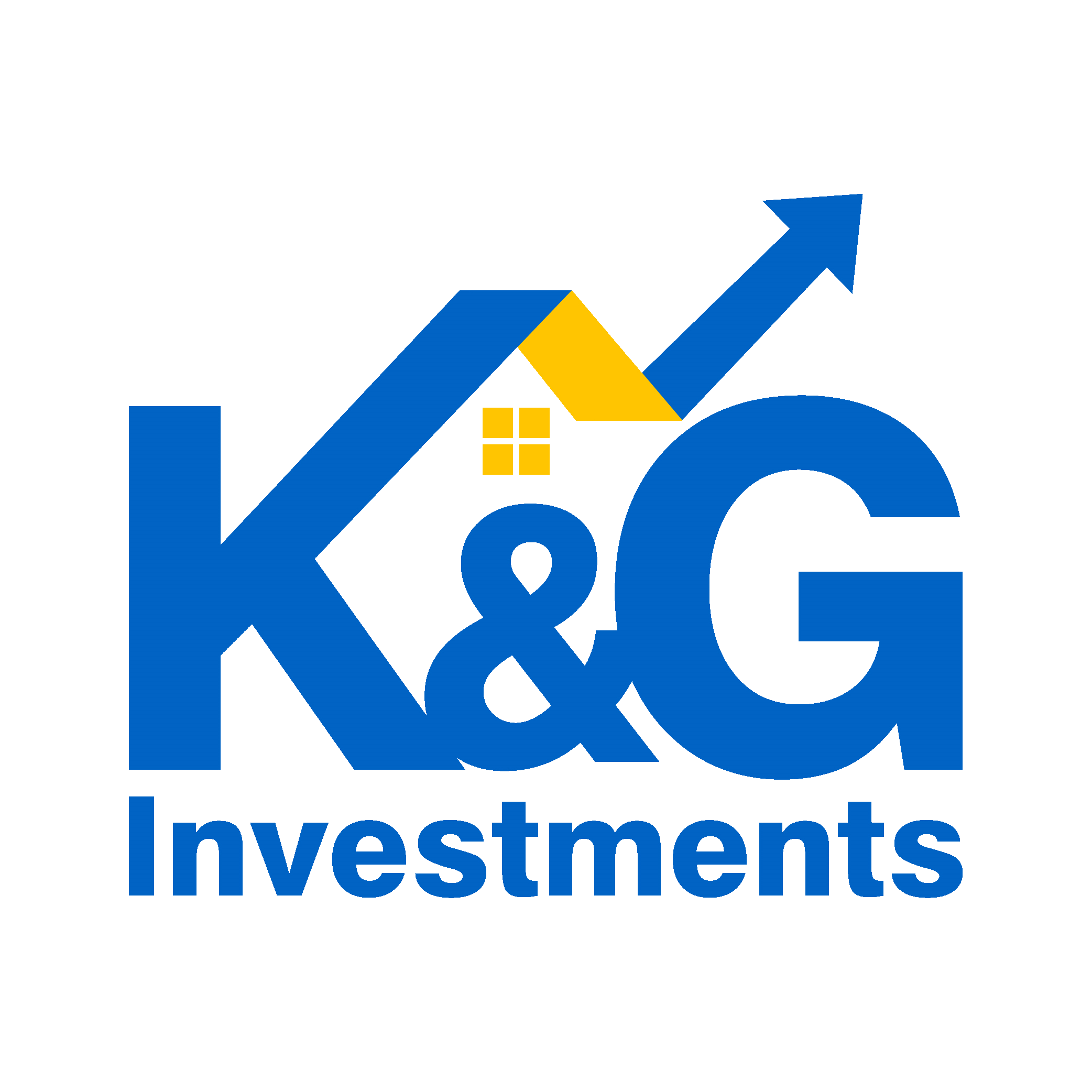
Understanding Real Estate Appraisals in Minneapolis, Minnesota
Understanding who bears the costs for appraisal and inspection is essential for buyers and sellers in Minneapolis’ real estate market. Appraisals are almost always a requisite for any real estate transaction in Minneapolis, as they establish the property’s value for the associated mortgage.
Typically, appraisal costs are borne by the buyer, especially in the context of a mortgage. This is particularly acute in the Minneapolis real estate market, where this expense is more of a necessity, with costs varying wildly.
As a buyer, a home inspection may not be required, but it is highly recommended so that any problems are detected. These inspections are paramount because, for many home buyers, knowing the necessary repairs before signing a purchase agreement is a dealbreaker.
However, in markets with a lot of competition, such as Minneapolis, sellers may subsidize these costs to attract buyers or speed up the sale of the property. Keeping these details in mind can help negotiate and achieve a seamless transaction in Minneapolis’s ever-changing real estate market.
The Importance of Accurate Home Appraisals for Buyers and Sellers
Appraising properties accurately benefits buyers and sellers in the Minneapolis real estate market. An appraisal analyzes a property’s merits and demerits and determines its market value. Homes listed above or below market value impact sellers and buyers, respectively.
In Minneapolis, securing mortgage financing typically necessitates obtaining a professional appraisal, which makes it critical for buyers seeking mortgage approval. With sellers, providing accurate appraisal-based insights facilitates competitive listing prices designed to attract buyer interest while maximizing returns on investment.
In addition, appraisals help align expectations, minimize negotiations, and avoid disagreements, which helps streamline smooth transactions. Due to the intricate nature of real estate in Minneapolis, knowing who is responsible for covering appraisal fees is essential. In contrast, these fees are often negotiable; they are typically considered the buyers’ responsibility unless stated otherwise in the purchase agreement.
K&G Investments provides fair cash offers and can help you avoid the delays and uncertainties of traditional appraisals. We buy homes in Minneapolis and surrounding Minnesota cities, ensuring a fast, hassle-free sale at a fair price.
How Market Trends Affect Appraisal Values in Minneapolis
In Minneapolis’ real estate sector, the prevailing property trends affect the quality of an appraisal. An appraiser must consider the current trends in demand for the property in issue.
Economic growth and low mortgage interest rates favor buyer interest in property, thus increasing appraisal figures. During periods of an economic downturn or when there are more houses for sale than demand, the opposite is true, and appraised home values will drop.
The area undergoing revitalization and new construction, such as new buildings and infrastructure, also affects appraisal values due to expected appraisal growth. In Minneapolis, local factors, such as the school district’s grade, crime rate, and safety, usually dictate market trends, affecting the appraisal outcomes.
To minimize appraisal inaccuracy, they cover a wide range of trends, which portray the current state of the market.
The Impact of Location on Property Values in Minneapolis, MN

The Minneapolis metropolitan region is diverse due to its twin cities. Still, it is also marked by pronounced differences in real estate prices driven by the seemingly simple but complex aspect of location.
Apart from the vitally essential parks, schools, and public transport services, real estate has great historical and cultural significance for the community. For example, the neighborhoods of Uptown and North Loop in Minneapolis are strongly favored because of their shopping and entertainment hubs and nightlife, which entails massive demand, tripling returns to upstream-priced real estate in these areas.
Attracting buyers willing to spend to retain St. Paul’s Summit Hill’s unique architectural homes is its historic homes and tree-lined streets.
Urban core differences and living within the suburbs are substantial; families in prime Minnetonka and Edina often prefer spacious homes with yards and excellent schools within the district. Given these location characteristics, inspection costs due to the number of detailed assessments to ensure properties in high-value areas would need to exceed buyer expectations.
Overall, the diverse landscape of Minneapolis creates a dynamic real estate market where location remains a key determinant of property value and associated costs like appraisals and inspections.
How Seasonality Influences Real Estate Transactions in Minnesota
In the Minneapolis real estate market, seasonality influences transactions and can significantly impact who covers appraisal and inspection costs. In the spring and summer months, when the demand for homes is highest, sellers often have the most market control. They can even require buyers to absorb the cost of appraisals and inspections to make their offers more competitive.
Winter and fall usually bring in much colder seasons, and as we all know, the Minnesota real estate market is notoriously slow to respond in these months. Buyers have the upper hand during this period and can almost require sellers to pay these costs to encourage finalizing agreements.
Buyers and sellers in the Minneapolis real estate market must grasp how seasonality impacts market dynamics since it determines transaction terms and costs. The annual cycle’s varying demand reminds buyers and sellers to plan strategically for who should pay for the appraisal and inspection costs in transactions in the area.
Contact us today for a fair, no-obligation offer and let us help you navigate the Minneapolis market, no matter the season.
Preparing Your Home for an Appraisal: Dos and Don’ts
Remember to consider aesthetics and functionality in the Minneapolis real estate market when prepping your home for appraisal. Consider starting the appraisal prep with more noticeable features like curb appeal. Completing simple landscaping and a fresh coat of paint can improve your home’s first impression, significantly influencing the appraiser’s judgement.
Stay on top of mundane tasks like light replacements and leaky faucet fixes. Also, remember to replace any broken tiles and ensure all lights in your home are in proper working condition. Organizing the clutter in the primary living areas and eliminating excess from storage areas and closets creates a more welcoming and roomy impression.
Keeping everything tidy makes a house easier to care for and indicates a level of maintenance that impresses appraisers. Refrain from doing extensive renovations that will take place just before the appraisal unless you’re confident they will improve the value significantly. Often, minor adjustments such as changing out fixtures or using a more subdued color paint will do more for your home at a fraction of the expense.
As the appraiser needs to appraise the entire home, including the basement and attic, ensure that they have unrestricted access to all areas for a thorough appraisal. Also, have documentation for recent upgrades or renovations that can increase your home’s value in the Minneapolis market.
Who Bears the Cost of Property Appraisals in Minnesota?
Grasping those who suffer the expense of appraisals is key for buyers and sellers in Minneapolis real estate. In Minnesota, ordering an appraisal is commonly part of the mortgage application process, leading to the assessment being paid for by the buyer.
To secure a loan, a professional appraisal is almost always mandatory in determining a property’s value, so it’s necessary for nearly all buyers. Depending on the size and type of the property, the cost of appraisals also differs. In most cases, the range is about $300 to $500.
Although sellers do not typically incur appraisal charges, they should understand that appraised valued listings significantly improve market competitiveness. In some cases, especially within competitive regions like Minneapolis, sellers and buyers sometimes negotiate different arrangements whereby sellers pay directly or indirectly through reduced offered prices towards appraisals.
Knowing these factors makes for seamless real estate transactions in Minnesota, along with the right expectations.
Understanding FHA vs Conventional Loan Appraisal Requirements

Understanding the difference between FHA and conventional loan appraisal requirements is essential when navigating real estate transactions in Minneapolis. Although both loan types require an appraisal, their standards vary, with FHA appraisals often including FHA Mandatory Repairs that must be completed before closing.
Judging the property for FHA loans demands stricter appraisal criteria because the property must be evaluated for the requisite health and safety FHA appraisal standards. The Federal Housing Administration backs FHA loans and has strict appraisal standards to ensure the property is eligible for safety, security, and soundness requirements.
Unlike government-backed loans, conventional loans provide more flexibility, including fewer required repairs and upgrades. Both appraisals evaluate a property’s market value, ensuring lenders do not overextend on loans.
In Minneapolis real estate transactions, buyers should be aware that sellers usually cover the cost of appraisals through closing cost negotiations in conventional deals. However, due to stricter inspection guidelines, FHA loans may require negotiation on who bears this expense. Cash home buyers in Minneapolis and surrounding cities in Minnesota can often bypass these appraisal complexities altogether, providing a faster and more streamlined selling process. Understanding these nuances can significantly impact the overall cost and process of purchasing a home with an FHA versus a conventional loan in the Minneapolis housing market.
How Recent Renovations Can Influence Your Home’s Appraised Value
Recent changes can significantly affect how much your house can be appraised in the Minneapolis real estate market. Modernized kitchens, updated bathrooms, and modern and energy-efficient windows have a measurable impact.
Besides beauty, energy-efficient windows also add and improve form and function and serve a purpose that appraisers must consider while determining the value. A new coat of paint and new flooring are examples of relatively minor changes that can lead to drastic changes in perception while being appraised.
Moreover, increasing curb appeal with landscaping or other external improvements can yield better appraisal results. Though investment in upscale materials and craftsmanship may be expensive, such improvements usually add to the appraisal value by bringing the home into greater alignment with prevailing market conditions and buyer sentiments in Minneapolis.
Steps to Take If Your Home Appraisal Falls Short
In case of an undervalued appraisal in Minneapolis real estate, there are a few ways to resolve the issue. Review the appraisal report thoroughly to see if any features have been undervalued on your property, resulting in an inaccurate appraisal.
Your property’s improvements and special features need to be assessed correctly so that you can evaluate them with your real estate agent and examine recent comparable sales in Minneapolis. That information could help contest the appraisal if need be.
In the Twin Cities region, you can independently verify the situation by contracting another appraiser with the required licenses. Also, in scenarios where you are working with a buyer financing the purchase with a dependent appraisal, work with them to modify the purchase price or provide seller concessions to achieve a mutual agreement.
Issues concerning appraisals will often benefit from openly engaging lenders and buyers regarding alternative ways to resolve the problems. Consider how the terms of who pays for assessments and inspections—generally between buyers and sellers in Minneapolis—affect how you approach these negotiations.
What to Do If There’s a Discrepancy Between Appraised Value and Offer Price
In the case of Minneapolis real estate, an appraisal gap poses challenges for real estate buyers and sellers. In cases where the appraisal comes in lower than the bid, auxiliary financing, in the form of loans, will not be granted since the appraised value serves as the upper limit of the loan.
To remedy the appraisal gap, an individual with cash reserves or an entity intending to cash out financing will be needed. Sellers must adopt new appraisal tactics that match the actual value plus the gap, or they must wait for buyers willing to match the appraisal plus the gap.
To resolve differences, either side may contest the appraisal by submitting other comparable sales or obtaining a second appraisal to determine the property’s value. Within this dynamic real estate framework, effective communication and adaptable negotiation tactics greatly facilitate reaching a common ground in alignment with specific expectations from both the buyer and seller.
The Role of Comparative Market Analysis (CMA) in Property Valuation

In the Minneapolis real estate market, the comparative market analysis (CMA) plays a crucial role in property valuation by providing a detailed assessment of similar recently sold properties. A CMA helps determine a property’s fair market value, which is essential for buyers and sellers during negotiations. Whether working with a traditional realtor or a cash-for-houses company in Bloomington or other Minnesota cities, understanding the CMA process is key to setting a competitive and accurate price.
Real estate agents typically conduct a CMA by examining the comparable homes’ location, size, condition, and amenities. This analysis is vital for appraisals as it ensures the property’s listing price aligns with current market trends.
Accurate CMAs can influence appraisal outcomes and inspection processes by setting realistic expectations for all parties involved. In Minneapolis, understanding who covers appraisal and inspection costs often depends on negotiations between buyers and sellers. However, having a reliable CMA can streamline these discussions by grounding them in factual data about local real estate values.
Who Pays for Appraisal, Buyer or Seller Near Me?
Understanding who covers appraisal and inspection costs is crucial for buyers and sellers in the Minneapolis real estate market. Typically, the buyer is responsible for paying for the appraisal, as the lender requires it to ensure that the property’s value supports the loan amount.
This cost, often ranging from $300 to $500 in Minneapolis, is essential to securing financing. However, the buyer generally also pays inspection fees.
These inspections provide valuable insights into the property’s condition before finalizing a purchase. While sellers may sometimes agree to cover these costs during negotiations to facilitate a quicker sale or as part of closing concessions, it remains more common for buyers to bear these expenses.
Understanding these financial responsibilities can significantly impact how parties approach negotiations in Minneapolis’s competitive real estate market.
How Much Does an Appraisal Cost in Minnesota?
Understanding the costs of property transactions, particularly appraisals, is crucial in the Minneapolis real estate market. In Minnesota, appraisal costs can vary based on several factors, including the property’s size, location, and complexity.
A standard home appraisal in Minnesota may range from $300 to $500 on average. However, appraisal fees can be higher for larger or more unique properties, such as luxury homes or those with extensive acreage.
Both buyers and sellers must budget for these costs as part of their overall transaction expenses. In most Minneapolis real estate deals, the buyer typically covers the appraisal price to secure their mortgage financing.
Knowing who pays for the appraisal and how much it might cost can help streamline the buying process and avoid unexpected expenses.
Who Is Typically Responsible for Paying for the Home Inspection?
In the Minneapolis real estate market, paying for a home inspection typically falls on the homebuyer. This is a crucial step in home-buying as it allows buyers to assess the property’s condition before finalizing the purchase.
The cost of a home inspection can vary based on the size and location of the property, but investing in this service provides peace of mind by identifying potential issues that may need addressing. While sellers are not generally responsible for covering these costs, they may choose to do so as part of negotiations or incentives to close a deal.
However, it remains standard practice for prospective buyers to arrange and pay for their home inspections to ensure a thorough and unbiased assessment of their potential new home in Minneapolis.
Who Pays Closing Costs in Minnesota?
In the Minneapolis real estate market, understanding who pays closing costs, including appraisal and inspection fees, is crucial for buyers and sellers. In Minnesota, closing costs typically involve various fees that can be negotiated between the buyer and seller.
Generally, buyers are responsible for covering the cost of appraisals and inspections as part of their due diligence process to ensure the property’s value and condition. However, it’s not uncommon for these expenses to be a point of negotiation in the purchase agreement.
Sellers might agree to cover some or all of these costs as an incentive or if market conditions favor buyers. Additionally, closing costs in Minnesota also include title insurance, loan origination fees, and taxes, which can be split differently depending on the terms agreed upon during negotiations.
Understanding how these costs are typically allocated can help both parties better prepare financially and ensure a smoother transaction in the Minneapolis real estate market.
Do you want to sell your home? If you want to avoid expensive repairs or a quick sale, this is the page for you. K&G Investments is here to help. We make fair cash offers, care for all the details, and simplify the process. Do you want to sell or have a question? For an offer that doesn’t bind you, call us at (612) 400-8070. Start right away!
| REAL ESTATE APPRAISERS | HOME INSPECTOR | INSPECTOR | CASH | MORTGAGE LENDERS | REALTORS |
| MONEY | THE TWIN CITIES | HOUZEO | CREDIT | PROPERTY TAXES | PROPERTY TAX |
| HOME EQUITY | EQUITY | DEED | ROOF | HOME INSURANCE | HOMEOWNERS |
| LEGAL CONTRACT | CONTRACTUAL | SEPTIC SYSTEM | SEPTIC TANK | RADON | PLUMBING |
| HOMEBUYERS | LAW | HVAC | HEATING AND COOLING | HVAC SYSTEM | |
| CONSUMERS | ST PAUL | PAYMENT | MOLD | MECHANICAL ENGINEER | MECHANICAL ENGINEERING |
| LOAN OFFICER | ATTORNEY | HOME EQUITY LOANS | HELOC | HAZARDS | ELECTRICAL SYSTEMS |
| CREDIT CARD | CONFIDENCE | BANK | BANKING | IN MINNESOTA THE | A HOME INSPECTION IS |
Helpful Minneapolis Blog Articles
- Selling A House As-is In Minneapolis, MN
- Selling Your Home In Minneapolis, MN
- Selling A Home In Need Of Repairs In Minneapolis, MN
- Tax Obligations When Selling A House In Minneapolis, MN
- Selling Your Minneapolis, MN, Home To A Developer
- Do I Need A Lawyer To Sell My House In Minneapolis, MN
- Home Appraisal Before Closing In Minneapolis, MN
- Sell Your House Directly To A Bank In Minneapolis, MN
- Home Staging Costs In Minneapolis, MN
- Strategies For Divorce Home Appraisal In Minneapolis, MN
- FSBO vs. Realtor: Selling Your Home in Minneapolis, MN
- Who Covers Appraisal And Inspection Costs In Minneapolis, MN

